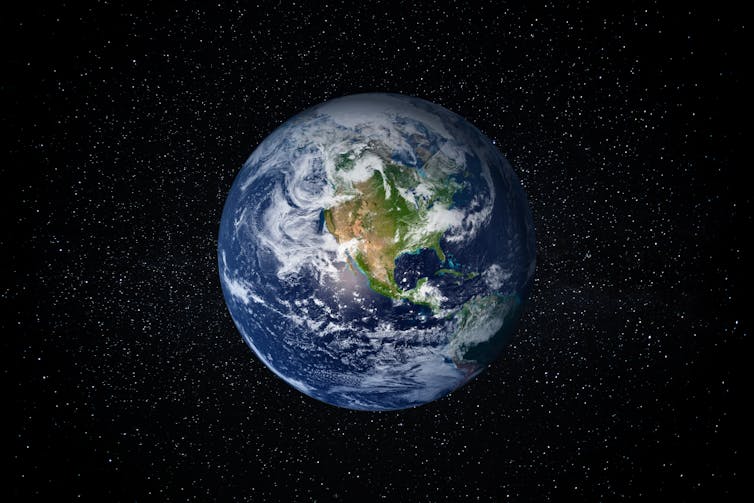Comment | Curious Kids: We have been trying to contact aliens - but do they want to contact us?

Jacco van Loon, Keele University
Humans have been trying to contact aliens for many years, but do the aliens want to contact us? – Sai, aged eight, London, UK
This is a great question – and the truth is that we don’t know the answer.
For starters, we haven’t found any aliens yet, so we haven’t been able to ask them and receive a reply. When we try to answer the question “do they want to contact us”, we have to put ourselves in their shoes – that is, if they have feet.
The question presumes that aliens do exist. And again, because we haven’t found any yet, we don’t know if they do. It is possible they may exist, for one simple reason: we exist. Whatever made the likes of bacteria evolve into complex bodies with intelligent brains on Earth may have also occurred on another planet.
On Earth this transformation seems to have taken place quite suddenly some 700 million years ago. At that time the Earth was already almost 4 billion years old, and had been inhabited by simple lifeforms such as bacteria for much of that time. Why did it not happen sooner? And what made it happen? Until we find the answers to those questions we cannot tell how likely it is that it also occurred elsewhere.
If there are aliens out there, they might want to contact us for the same reasons we want to contact them.
One reason why scientists on Earth are looking for aliens is that we are curious. We want to know if they exist, what they are like, and what our relationship with them might be. Curiosity is a powerful force, leading us to look beyond the horizon and to try new things. It is how we have developed science and technology, why we can have video calls with friends on the other side of the world and why we can now venture out into space. Aliens may be curious about us, too.
But there are other reasons why we want to contact others. We have sometimes needed help from others, or companionship. Perhaps aliens, too, would look to us for help or friendship.
They may also be interested in our planet. Earth has perfect conditions for life. Aliens might need another home, if for some reason – such as climate change, nuclear war or an enormous asteroid impact – they had to leave their own planet.

It’s also possible that they would not be looking for friendship. There are plenty of examples from our history of times when humans have travelled somewhere on Earth and acted cruelly, killing or enslaving the people that lived there. Aliens settling on Earth might want us out of their way. There’s another reason – humans are predators who eat other lifeforms. Aliens might find us nutritious or tasty too.
These are all possible reasons why aliens might want to contact us. But what if they didn’t? Some aliens might find us boring, hard to understand, too primitive to deserve their attention, or potentially bearing disease. Conversations across the vastness of space take many years, and travel much longer still. Some aliens might simply not be interested in life beyond their own world.
On the other hand, it may be that life such as ours is actually very common. With so many worlds and civilisations to choose from, we may simply not yet have caught their eye. If that is the case, we might soon detect alien life around nearby stars for ourselves.

Curious Kids is a series by The Conversation that gives children the chance to have their questions about the world answered by experts.
Jacco van Loon, Astrophysicist and Director of Keele Observatory, Keele University.
This article is republished from The Conversation under a Creative Commons license. Read the original article.
Most read
Contact us
Andy Cain,
Media Relations Manager
+44 1782 733857
Abby Swift,
Senior Communications Officer
+44 1782 734925
Adam Blakeman,
Press Officer
+44 7775 033274
Ashleigh Williams,
Senior Internal Communications Officer
Strategic Communications and Brand news@keele.ac.uk.


